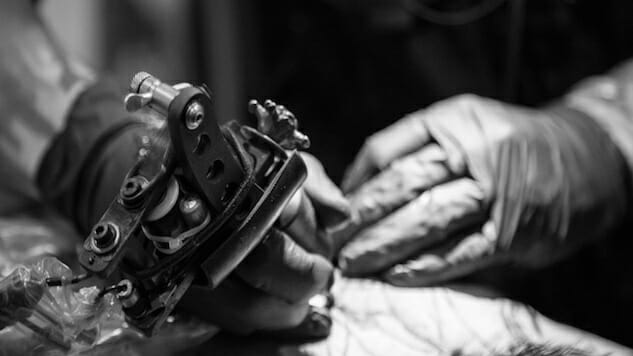
The day has finally come—you contemplated the design for months, squirmed in a leather chair for hours as your arm was repeatedly poked by a needle and now, finally, you have your dream tattoo. The tattoo artist rambles as you daydream about showing off your new ink during an upcoming beach trip… and what the artist is saying can’t be that important, right?
Wrong. The aftercare instructions given by a trained tattoo artist are extremely important, and unfortunately, when not followed, can have grave consequences.
Unfortunately, these consequences can even be deadly, such as in the case of a 31 year old Texas man, who died after going for a swim in the Gulf of Mexico just five days after getting a fresh tattoo on his calf.
With the rising popularity of tattoos, it’s easy to forget that they are in fact open wound—made of thousands of tiny pinpricks—that take weeks to heal. These open wounds are highly susceptible to bacteria and infections, such as the Vibrio vulnificus bacteria that infected the unnamed Texas man, leading to his tragic death just weeks later.
The Vibrio bacteria is typically found in seawater and raw oysters, and is more common than you might think. According to the CDC, the bacteria causes an estimated 80,000 illnesses and 100 deaths yearly in the United States, due to people consuming raw seafood or exposing an open wound to infected water.
In the case of the unidentified man, the bacteria led to septic shock and cellulitis dangerous combination that didn’t respond to high-powered antibiotics.
Because of these risks, it is important to remember the many precautions outlined by tattoo artists, especially as the summer months set in and beach vacations become a preferred getaway.
Keeping a bandage on the tattooed area for 24 hours and applying a topical antibiotic ointment and moisturizer will cut the risk of infection, according to Dr. Michele S. Green, a dermatologist at Lenox Hill Hospital in New York City. Further, staying out of bodies of water—natural and man-made, such as pools or hot tubs—will lower the risk of exposure to bacteria and germs.
More information on tattoo aftercare can be found on the Mayo Clinic website, although if you’re getting tattooed at a credible, heavily-researched parlor, they will likely brief you on the basics after you get inked.
Photo: Paolo Soro, CC-BY
Emma Korstanje is a freelance journalist based out of Athens, GA.